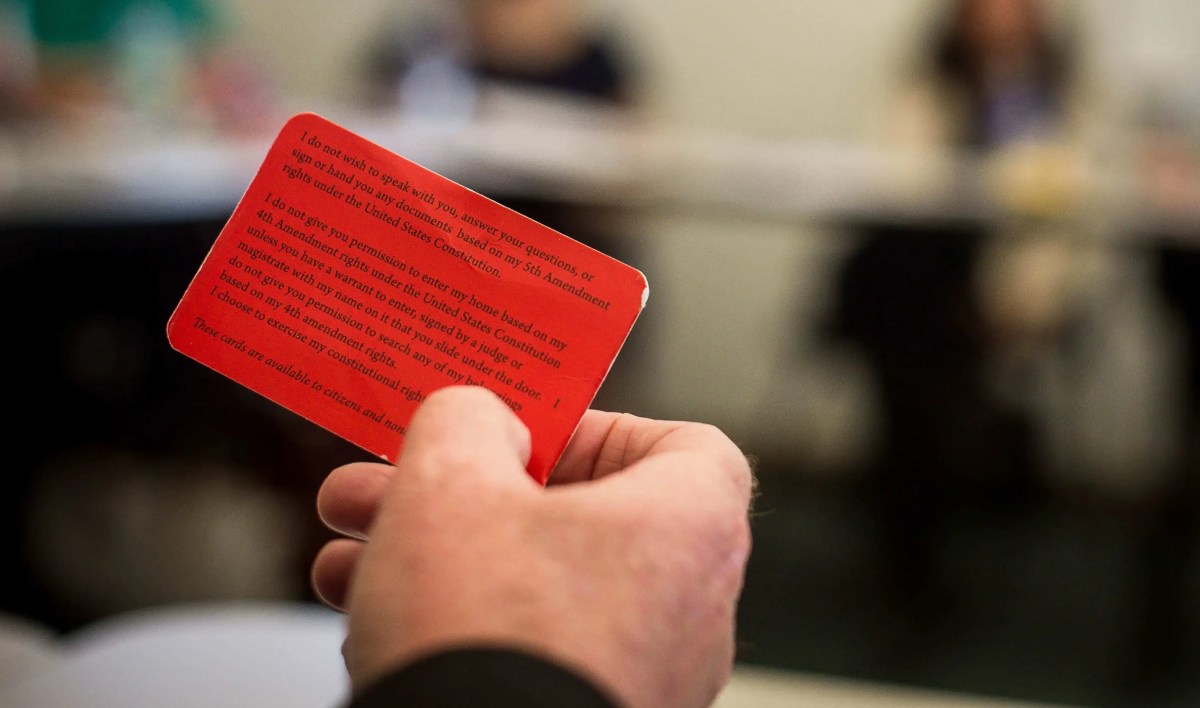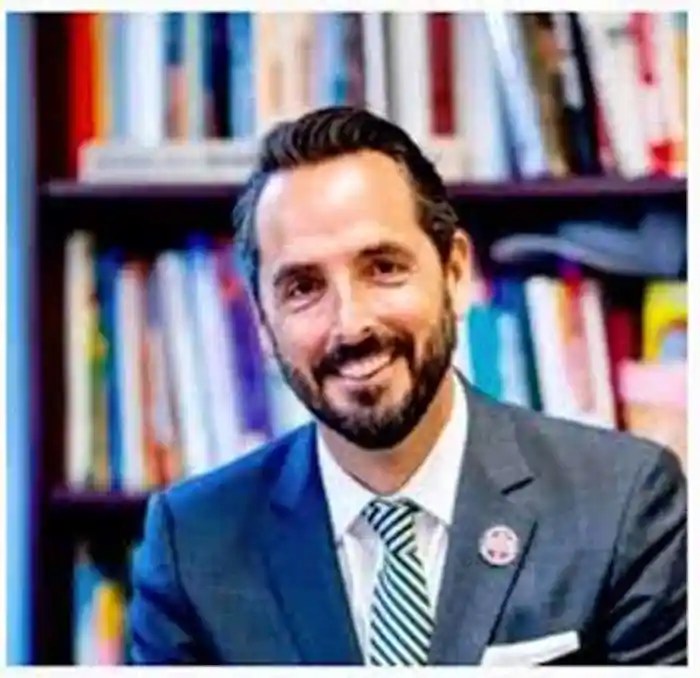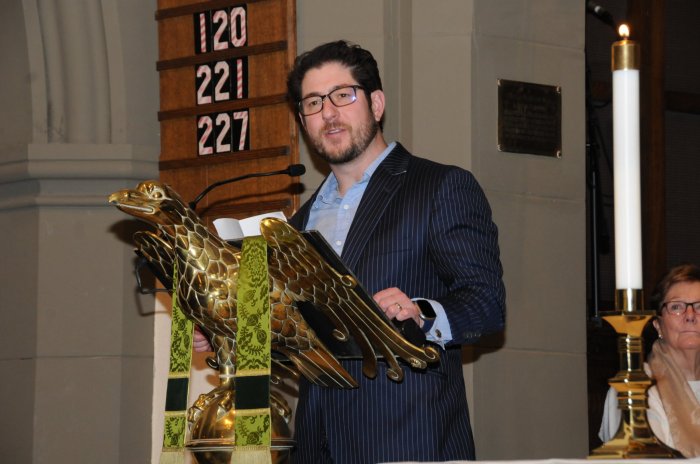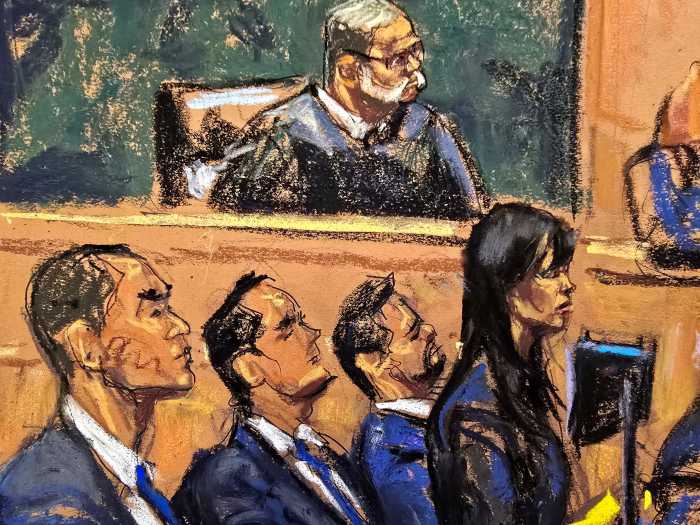The U.S. Immigration and Customs Enforcement Agency has been ramping up its actions under President Donald Trump’s administration, yet much of this action has been unprecedented.
Great Neck-based immigration attorney Byron Quintanilla said this has created a gray area for lawyers to operate under and advise their clients on as the legal landscape changes before their eyes.
But Quintanilla, like many others, is stepping up to inform communities and immigrants to protect people’s rights.
“Everyday we are finding new ways, creative ways, to try to help our clients to understand the changes and how to navigate where their case is,” Quintanilla said.
Quintanilla said he was inspired to pursue immigration law after witnessing his parents having to navigate the system when immigrating from Guatemala.
“They didn’t know how to navigate the process. They had to learn,” Quintanilla said. “I feel like I’m giving back to my community and doing my father justice for his sacrifices because I wouldn’t be here without him.”
He served as a translator for his parents as they pursued citizenship – a goal they were able to achieve.
“I had to help my parents at times translate documents from English to Spanish, then Spanish to English,” Quintanilla said. “So I felt that I was, in the sense, navigating the process for them at a young age.”
Quintanilla said he thinks the gray area in immigration law exists because ICE agents are not adhering to established protocols.
“ICE won’t play fair,” Quintanilla said.
Quintanilla is often at the New York City Federal Plaza Immigration Court where he appears in court alongside his clients. What he has witnessed there are ICE agents sitting outside courtrooms, waiting for a moment when an immigrant can be detained depending on how the court hearing goes.
He said this often concerns immigrants with pending applications that are rendered defective by a judge. He said these pending applications are often for asylum and can be denied due to inefficient evidence.
Usually the agents are in plainclothes as well, Quintanilla said.
“It’s a scary position to be in,” he said.
Quintanilla said jurisdiction rules vary from court to court.
Federal immigration court is within ICE’s jurisdiction, permitting them to be in the building but not necessarily in the courtroom.
Non-federal courts do not host immigration cases, but immigrants can appear in these courts for unrelated issues like traffic tickets or other crimes and violations. He said this can still present them with risks of detainment.
In state courts, ICE agents can’t be in or around the building at all under the state’s Protect Our Courts Act.
But Quintanilla said this doesn’t entirely protect against detentions, saying agents could follow individuals outside the courthouse and detain them once they go down the street.
He said he is advising his clients, like many other immigration attorneys are doing, to request a virtual court appearance.
Quintanilla suggested immigrants prepare in anticipation of a potential detainment, not to sow fear but rather to prevent future issues if it occurs. He said this should include consulting an attorney.
“I believe that preventative action, taking actions to prevent anything from happening in the future, is super important,” Quintanilla said.
He said many immigrants being sought by ICE are those subject to expedited removal, or immigrants without a case filed in court seeking legal status, those who’ve been in the United States for less than two years, or those who’ve been issued an order of removal. He said immigrants with any of these issues may have to seek other forms of relief.
In the event that someone is detained, one avenue to permit more time to prepare for a case and delay deportation is to request a bond hearing, Quintanilla said. This is the case for Fernando Mejia, the Port Washington detained bagel shop manager who was recently granted a temporary reprieve.
Quintanilla said attorneys can aid individuals to prepare in the event they may be detained or deported, including securing guardianship for their children, practicing a script of their rights when facing law enforcement or being present during an interaction with ICE agents. He said he advises his clients to video call him when faced with law enforcement so he can represent them and ensure their rights are upheld.
“I think technology in some regards has provided its benefits,” Quintanilla said. “As lawyers, we’ve had to get creative.”
Another protection Quintanilla and other attorneys suggest for immigrants is to sign a G-28 form, which permits an attorney to speak to ICE agents if their client is detained at their hearing. He said that without one, attorneys can be declared as intervening in federal protocol and denied the ability to assist their client.
When confronting an ICE agent, Quintanilla recommends that individuals ask for the agent’s name and badge number and gather descriptive details of their appearance to confirm that they are actually an agent and not a bounty hunter.
He also recommends that witnesses record ICE agents’ conduct to catch any violations of someone’s rights, which can help them fight legal action and get justice.
For someone detained without legal counsel, Quintanilla strongly urged them to learn the phone number of a reliable family member. He said detained individuals are permitted a phone call and should contact a trusted person to help get them an attorney.
Amid what he described as an unprecedented time for immigration law, Quintanilla seeks to educate and inform his community of immigrants and citizens to help uphold people’s rights.
Quintanilla plans to provide more information through community information sessions, which he seeks to launch in the fall.
“Without education, what do we have?” Quintanilla said.



































